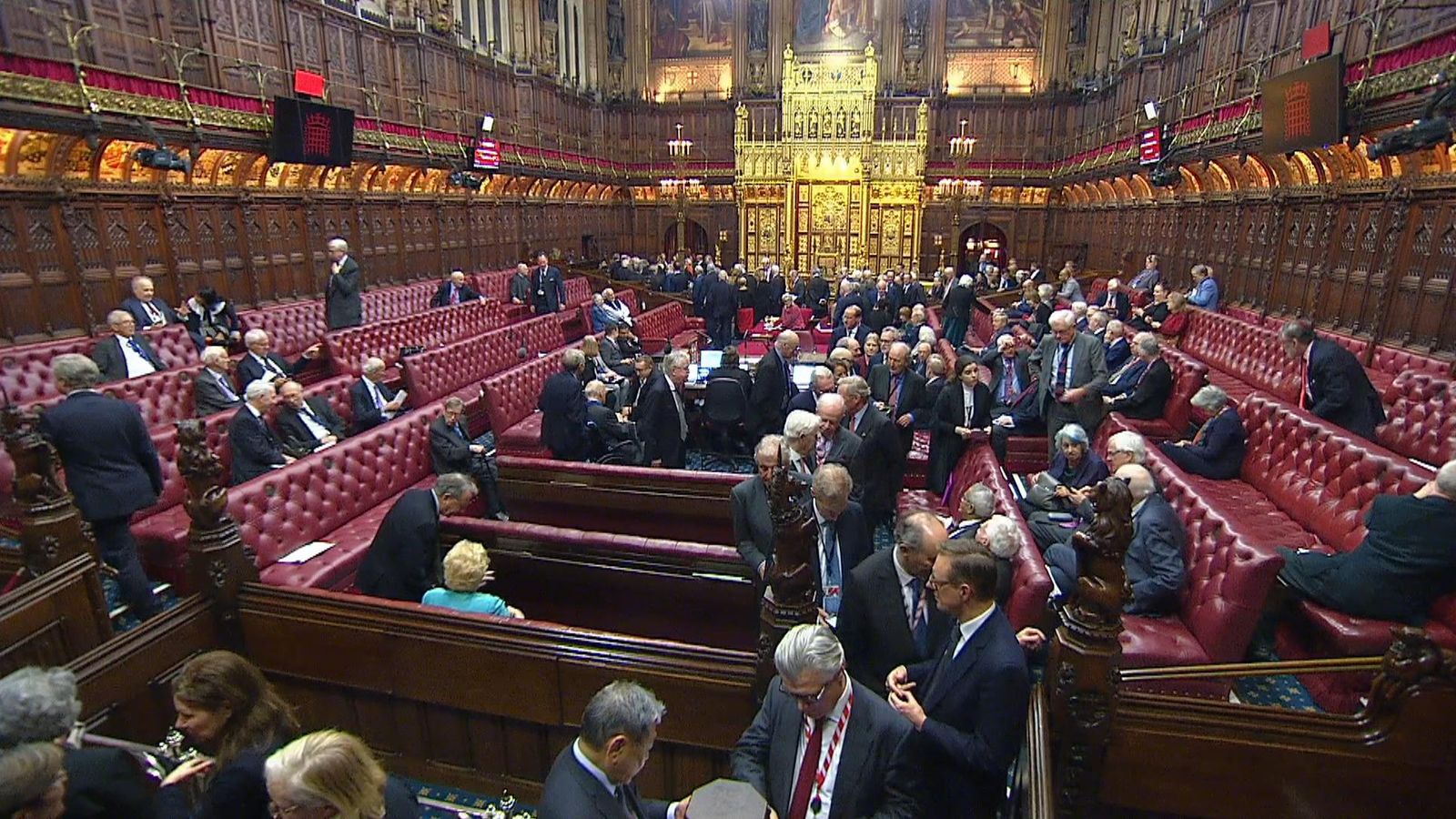New defeats for the government’s Rwanda bill in the House of Lords have set up a parliamentary showdown on Wednesday – forcing MPs to consider changes to Rishi Sunak’s stop the boats plan.
Downing Street wants to get the bill – which declares Rwanda a safe country and stops appeals from asylum seekers being sent there on safety grounds – on the statute books this week.
On Monday, the House of Commons stripped seven amendments from the bill previously imposed by the Lords. It was then debated again today.
Politics latest:
No 10 criticises bid to shut down Brussels conference
But with new amendments being added once again by peers, the Commons will need to debate these changes and vote on them on Wednesday – with the Lords sitting later in the evening to consider whether to implement further amendments.
The government had been hoping to get the bill passed on Wednesday, but this depends on parliamentary arithmetic and whether peers propose more changes.
A date for when the government wants to start flights is not set in stone – although ministers have said they want to do so within weeks.
Four fresh defeats for plan in the Lords
An attempt to add an amendment by Lord Vernon Coaker, a Labour frontbencher, was successful – by 258 votes to 233.
This amendment aimed to force the bill to have “due regard” to international law and also the Children Act, Human Rights Act and Modern Slavery Act.
It is a slightly more focused attempt to force the bill to comply with existing legislation.
An amendment proposed by crossbencher and former judge Lord David Hope was also successful, with 266 peers voting for it, and 227 against.
It sought to stop the government from declaring Rwanda safe until a report had been completed by a monitoring committee set up as part of the new treaty.
The change also provided a pathway to remove the safe status via a report to the government by the same committee.
A third amendment, proposed by Labour backbencher Baroness Shami Chakrabarti, also succeeded, with 253 peers backing it and 236 opposing.
This amendment is another attempt to introduce a way to appeal against the assertion that Rwanda is a safe country, and to provide a way to stop people being deported during appeals.
A fourth amendment, in the name of Labour’s Lord Des Browne, was also successful, with a vote of 275 to 218.
Lord Browne’s amendment seeks to exempt those who served for or with the British armed forces from being sent to Rwanda.


